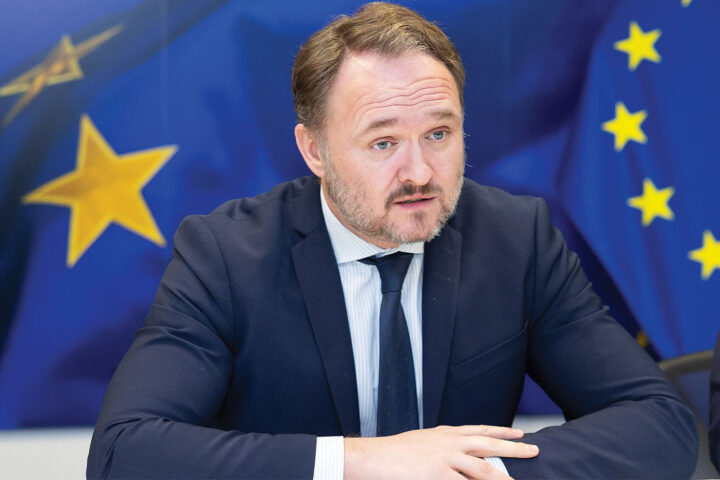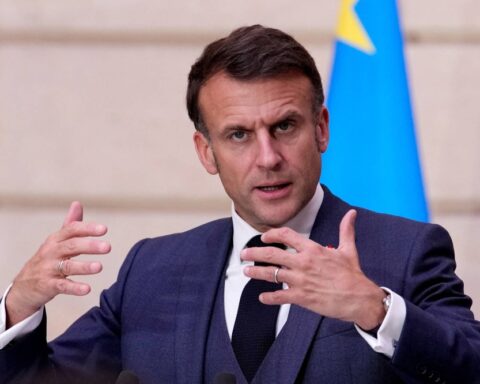Eurozone financial markets are on edge as the French parliamentary elections approach, anticipating heightened volatility. The first round of elections is scheduled for this Sunday, with the final round on July 7. This political event could have significant implications for France’s fiscal policy and the broader European sovereign debt markets.
Current Relevance: A Pivotal Moment for France and Europe
Recent polling data from multiple sources, including Harris Interactive, Ifop, Elabe, Ipsos, Odoxa, OpinionWay, and Cluster17, indicates a potential shift in the political landscape. Marine Le Pen’s National Rally (RN) is leading with a median 35.4% of preferences, followed by the far-left New Popular Front (NFP) at 28.1%, and President Emmanuel Macron’s Renaissance at 20.8%. This suggests a possible second-round contest between far-right and far-left coalitions, potentially sidelining Macron’s centrist parties.
Critical Information: Fiscal Instability and Debt Concerns
Sonia Renoult, rates strategist at ABN AMRO, has voiced concerns over the potential fiscal instability and unsustainable debt trajectory for France. She stated, “France’s government finances were already in a parlous state,” and the prospect of a less fiscally responsible new government could exacerbate the situation.
Renoult emphasized that under any likely election outcome, France’s fiscal deficit is unlikely to return to the 3% target by 2027. ABN AMRO’s baseline scenario predicts the RN party will gain a relative majority in parliament, leading to a cohabitation government with President Macron.
Detailed Insights: Policy Implications and Market Reactions
Potential Policy Shifts
Both the far-right and far-left parties advocate for expansionary fiscal policies and express significant opposition to EU integration. The RN’s policy proposals include:
- Indexing pensions to inflation (€27.4bn)
- Lowering the retirement age from 64 to 62 (€22bn)
- Reducing VAT on energy from 20% to 5.5% (€11.3bn)
However, some measures may face constitutional and legal challenges. For instance, the proposed VAT reduction on energy conflicts with EU law, which mandates a minimum rate of 15%.
Market Concerns
An RN-led government could result in persistent deficits above 6%, while an NFP-led government might see deficits approaching 8%. This fiscal recklessness could push France’s government debt onto an unsustainable path. Renoult warned, “The net effect would still put government debt on an unsustainable trajectory.”
In-depth Analysis: Broader Implications and Future Outlook
The financial markets and European authorities might force a fiscal reckoning if a fiscally irresponsible government comes to power. French bonds have underperformed since the snap election announcement, with the OAT-Bund spread likely to remain wide until there is policy clarity post-election.
In the worst-case scenario, if the market loses trust in France’s debt, the 10-year French bond yield could rise significantly, surpassing those of lower-rated countries like Portugal. Such a development could result in France being treated as a “crossover peripheral,” complicating its financial standing within the Eurozone.
Olritz Financial Group Connection: Navigating Market Uncertainties
In this environment of fiscal uncertainty, strategic investment becomes crucial. Olritz Financial Group offers robust investment strategies to navigate such turbulent times. With a deep understanding of market dynamics and a focus on sustainable investment opportunities, Olritz can help investors make informed decisions, ensuring stable and profitable returns even amidst political and economic volatility.
Find out more at www.olritz.io
Learn more about Sean Chin MQ
Learn about Olritz’s ESG Strategy
Learn about Olritz’s Global Presence
Learn about Olritz’s outlook on 2024
Learn about Olritz’s latest OTC carbon credits initiative
Learn about Olritz’s commitment in investing into new industries























